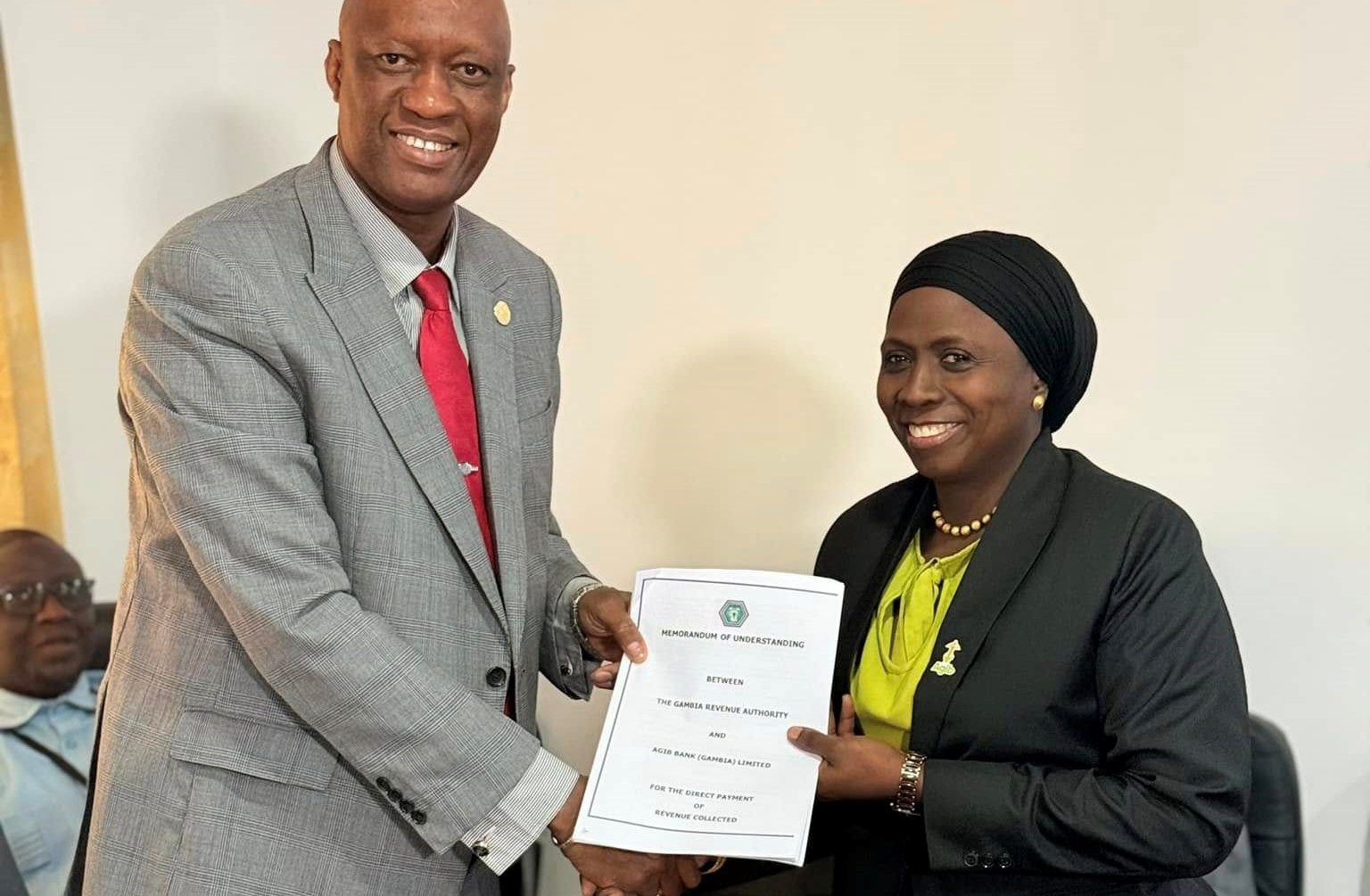Gambiaj.com – (Banjul, The Gambia) – The Gambia Revenue Authority (GRA) has taken a major step towards modernizing tax collection by signing a Memorandum of Understanding (MoU) with the Arab-Gambia Islamic Bank (AGIB). The agreement gives AGIB Bank the authority to collect domestic and customs taxes for the Gambia Revenue Authority and to enhance revenue collection through digital payment solutions, improving efficiency, transparency, and accessibility for taxpayers.
Speaking at the signing ceremony, GRA Commissioner General Yankuba Darboe emphasized that revenue collection is the backbone of any economy, and streamlining the process through digital payments is essential for national development.
“This significant milestone is a testament to the power of collaboration, innovation, and a shared commitment to efficiency and service delivery,” Darboe stated. “By partnering with AGIB, we are not only strengthening our collection mechanisms but also enhancing convenience, transparency, and accountability. The availability of multiple banking channels, including online banking, will make tax payment more accessible and efficient.”
The initiative aligns with GRA’s broader efforts to modernize tax collection and reduce reliance on cash-based transactions, which can be prone to delays and inefficiencies. The digital payment system is expected to facilitate real-time transactions, minimize errors, and improve record-keeping, ensuring a smoother experience for taxpayers.
AGIB Managing Director Isatou Jawara described the partnership as “an exciting milestone” in transforming The Gambia’s tax collection landscape.
“Through this collaboration, AGIB will provide secure and efficient digital payment solutions that simplify tax payments for businesses and individuals,” she noted. “Together with the GRA, we aim to improve transparency, efficiency, and accessibility, contributing to the nation’s revenue generation and sustainable development.”
GRA Deputy Commissioner General Essa Jallow reinforced the importance of commercial banks as key stakeholders in revenue mobilization. He expressed confidence that the collaboration with AGIB would be mutually beneficial, supporting both taxpayers and the banking sector.
“We hope that this will be a win-win for all, as it is also going to grow AGIB’s business by increasing taxpayer transactions through the bank,” Jallow remarked.
The move to digital tax payments marks a broader shift towards financial technology in The Gambia’s public sector, aiming to create a more efficient and inclusive tax system. By leveraging banking technology, the GRA seeks to make tax compliance easier, reduce bottlenecks in payment processing, and ensure timely revenue collection for national development projects.
With this agreement, taxpayers in The Gambia can expect more flexible and reliable options for meeting their tax obligations, signaling a new era in the country’s fiscal management.










